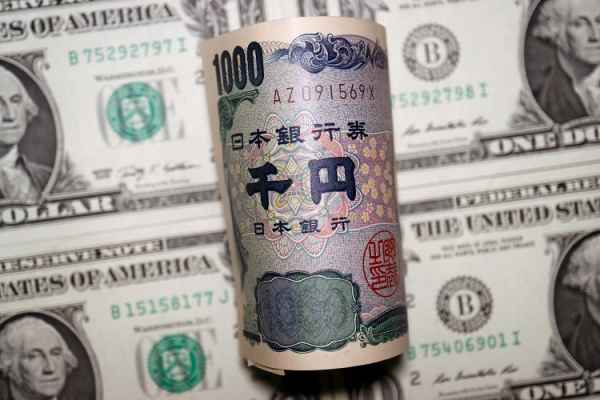Japan's central bank refused to change policy while expressing concern about the economic conditions going forward. As a result, the yen exchange rate collapsed.
The yen exchange rate has strengthened rapidly since the end of last year because market players expect the Japanese central bank (BoJ) to change its policy direction to become tighter in line with rising inflation. Unfortunately, that hope was crushed after the announcement of the results of the BoJ policy meeting today (18/January).

Instead of being more hawkish, the BoJ has added new ammunition to enforce its loose monetary policy. Consequently, USD/JPY jumped about 2.5% to a one-session high of 131.58. GBP/JPY and EUR/JPY also jumped more than 2 percent each.
The BoJ announcement revealed that the meeting participants agreed to maintain the yield curve control (YCC) policy with a target short-term interest rate of -0.1% and a target yield for JGB 10Y bonds at 50 basis points around 0%. In other words, the maximum JGB 10Y yield threshold remains at 0.50%.
In response to market action that repeatedly forced yields to exceed their threshold, the BoJ chose to amend the rules for market operations. The amendment allows the central bank to channel funds to financial institutions for up to 10 years through fixed or floating-interest loans. Previously, the BoJ could only distribute it at a fixed rate.
"The BOJ will determine the interest rate for each loan to encourage the formation of a yield curve consistent with market operating guidelines, taking into account the market price of Japanese government bonds for each maturity," said an official BOJ statement.
The BoJ also presented projections of Japan's economic conditions worsening and inflation declining again in the details of the meeting results. They predict the rate of increase in prices will be moderated as the effects of rising raw material prices fade. Meanwhile, this year's global economic slowdown will burden Japan's economic growth, which relies on exports.
Several observers indicated that today's BoJ announcement was an attempt by Governor Haruhiko Kuroda to stabilize the situation before the replacement of the BoJ Governor in April. Therefore, there is still a glimmer of hope for a change in the Japanese central bank's policy, even though it is unlikely to materialize in the near future.
"This may be Governor Haruhiko Kuroda's way of ensuring his successor doesn't have to deal with deteriorating market functioning since his inception," said Takafumi Yamawaki, head of Japan interest rate research at JP Morgan Securities. "It is necessary to work on the YCC, which has several limitations. But any changes (which are likely to be) can be made by the new governor after observing the economic conditions."

 Dedicated FREE FOREX VPS
Dedicated FREE FOREX VPS Free FOREX Virtual Private Server
Free FOREX Virtual Private Server MT4 Demo Contest, Get $500
MT4 Demo Contest, Get $500 Sign Up for an Account, Claim 60% Deposit Bonus
Sign Up for an Account, Claim 60% Deposit Bonus Free MT4/MT5 VPS 2024
Free MT4/MT5 VPS 2024 Send E-mail and Get Free Merchandise
Send E-mail and Get Free Merchandise $1K Refer a Friend Bonus for Pepperstone Pro clients
$1K Refer a Friend Bonus for Pepperstone Pro clients Maximize Your Earnings with 100% Deposit bonus
Maximize Your Earnings with 100% Deposit bonus Trade to Win, $5,000 Monthly Demo Contest
Trade to Win, $5,000 Monthly Demo Contest Claim 30% + 15% Deposit Bonus from LiteFinance
Claim 30% + 15% Deposit Bonus from LiteFinance






